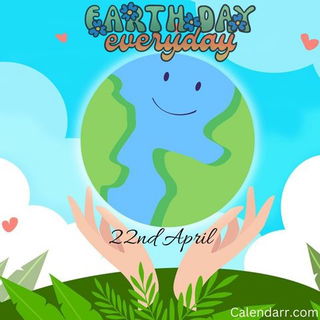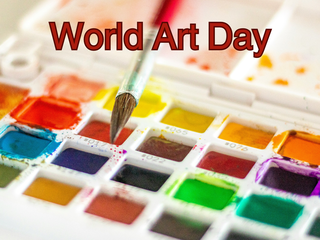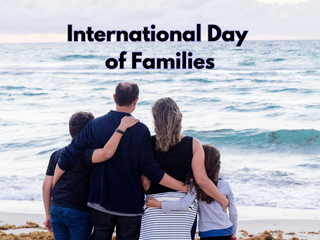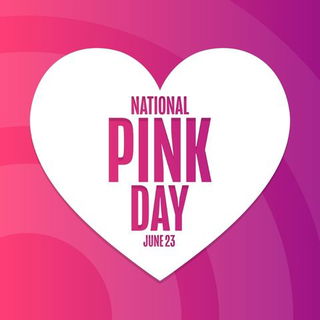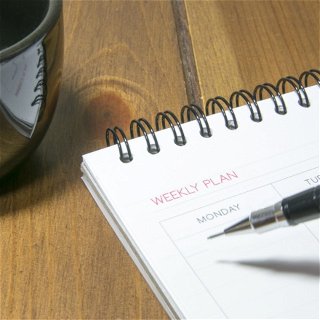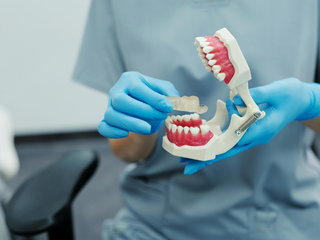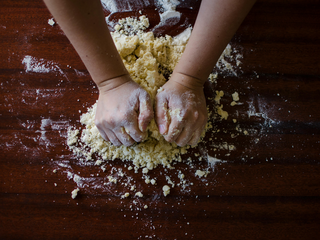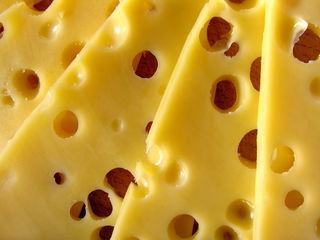- Calendar
- Calendar 2026
- April
- World Homeopathy Day
World Homeopathy Day
World Homeopathy Day is observed every year on April 10 to pay tribute to the birth anniversary of Dr. Samuel Hahnemann, the founder of homeopathy.
The day recognizes the contributions of homeopathy to complete health and well-being.
It also gives us an opportunity to spread awareness about homeopathy medicine and its role in alternative healthcare.
Origin of World Homeopathy Day
World Homeopathy Day was first celebrated in 2005. It was officially announced by the World Homeopathy Awareness Organization (WHAO) during its annual conference in New Delhi, India. The idea for this day started in India, where homeopathy has a strong presence.
History of Homeopathy
A German doctor named Samuel Hahnemann created Homeopathy in the year 1796 and during that time, mainstream medicine often meant harmful treatments like purging, bloodletting and more.
Hahnemann was against this practice and held a strong belief that medicines should be gentler and have a different principle.
He got the idea for Homeopathy when he was translating a book by William Cullen who was a Scottish doctor.
That book claimed that cinchona bark containing quinine cured malaria because of its bitterness.
Unable to believe it at first, he decided to test it for himself and consumed cinchona bark. Surprisingly, he experienced symptoms similar to malaria like fever and chills.
This led him to invent a new idea which was “like cures like” which means a substance that causes symptoms in a healthy person, could treat similar symptoms in a sick person in small doses.
He called this approach homeopathy, from the Greek words “hómoios” (similar) and “páthos” (suffering).
Hahnemann started experimenting with various substances on healthy volunteers and recorded their responses.
These experiments, also known as “provings” became the backbone of homeopathic medicine.
He believed that large doses of a substance could worsen symptoms so he created a method of dilution and succussion (shaking) to reduce side effects simultaneously increasing the remedy's healing power.
He also claimed that the process also released the vital energy of the substance, thus making it more effective.
His ideas are explained in his popular book known as the “The Organon of the Healing Art” published in 1810 which is still a very important part of homeopathy.
The Theory of Miasms
Hahnemann also introduced the idea of miasms, which he described as the root cause of chronic diseases.
He believed that illnesses like epilepsy, cancer, and cataracts came from three main miasms:
- Psora (linked to skin diseases like itching)
- Syphilis (related to venereal diseases)
- Sycosis (associated with warts)
Later, homeopaths added other miasms, including ones for tuberculosis and cancer. However, this theory has been widely debated, even within homeopathy.
The Rise and Fall of Homeopathy
Several doctors and scientists in the 19th century criticized homeopathy, stating that extreme dilutions cause remedies to contain no active ingredients.
Sir John Forbes, Queen Victoria’s physician, called it “an outrage to human reason.”
American physician Oliver Wendell Holmes dismissed it in his 1842 essay, Homeopathy and Its Kindred Delusions.
By 1920, the last homeopathic school in the U.S. closed as modern medicine advanced.
Although Homeopathy saw a decline in the early 1900s, it regained its popularity during the 1970s with the rise of New Age principles and natural healing.
Greek homeopath George Vithoulkas helped modernize its theories, and this helped in increasing sales.
Homeopathy is still actively used in countries like Germany and India and in the U.S., Senator Royal Copeland helped keep homeopathic remedies legally recognized.
Modern studies have found no reliable evidence that homeopathy works beyond a placebo effect, leading to increased regulation.
- 2010: The UK recommended stopping NHS funding, which ended in 2017.
- 2015: Australia’s health council declared homeopathy ineffective.
- 2018-2019: U.S. lawsuits challenged retailers for selling homeopathic products without scientific disclaimers.
- 2021: France removed homeopathy from health insurance, and Spain planned a ban.
Principles of Homeopathy
- Law of Similars: A substance that causes symptoms in a healthy individual can be used to treat similar symptoms in a sick individual.
- Law of Minimum Dose: The lower the dose, the more effective the remedy. Homeopathic medicines are highly diluted to enhance their healing potential while minimizing side effects.
- Individualized Treatment: Homeopathic treatments are personalized, considering a patient's symptoms, lifestyle, and emotional state.
How World Homeopathy Day is observed
Attend conferences and seminars where experts discuss research and advancements in homeopathy.
Join workshops and awareness campaigns to learn about its benefits and applications.
Some institutions host free medical camps, offering check-ups and treatments to promote accessibility.
Honor Dr. Samuel Hahnemann’s legacy, recognizing his contributions to alternative medicine.
While debates continue, this day highlights homeopathy’s role in healthcare, encouraging research, safe practices, and public awareness.
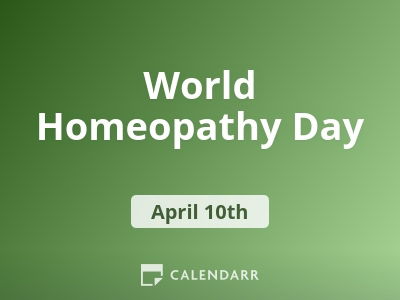
Other Celebrations
-
Feb 13 Thu
-
Apr 07 Mon
-
Apr 18 Fri
-
May 31 Sat
-
Nov 17 Mon
-
Jan 17 Sat

World Homeopathy Day - Next years
Saturday, 10 April 2027
Monday, 10 April 2028
Tuesday, 10 April 2029
